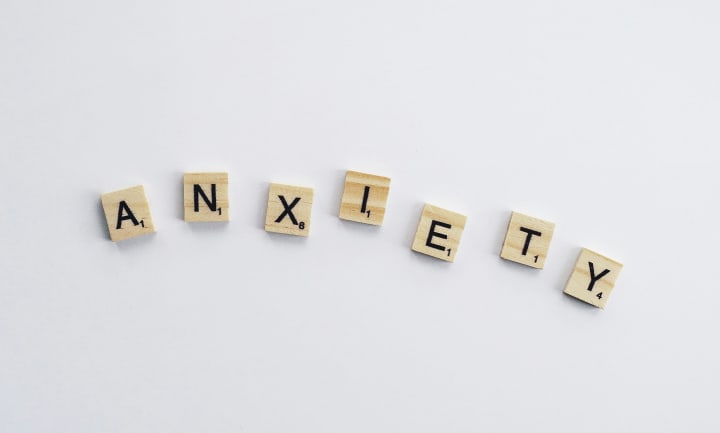Mental Health in the Digital Age: Coping Strategies for 2024
Strategies to Maintain Mental Well-Being in a Constantly Connected World

In today's fast-paced world, the digital age has brought numerous conveniences and advancements, but it has also introduced new challenges to our mental health. As we navigate through 2024, understanding how to maintain and improve our mental well-being in the face of constant connectivity and digital overload is crucial. Here, we explore effective coping strategies to help you manage your mental health in the digital age.
1. Set Boundaries with Technology
One of the most effective ways to maintain mental health in the digital age is to set clear boundaries with technology. Establishing "tech-free" zones or times, such as during meals or before bedtime, can help reduce stress and promote better sleep. Designate specific times to check emails and social media, and avoid getting caught up in constant notifications.
2. Practice Digital DetoxRegular
digital detoxes are essential for mental well-being. Consider dedicating one day a week to disconnect from digital devices entirely. Use this time to engage in offline activities that bring you joy, such as reading a book, going for a walk, or spending quality time with loved ones. A digital detox helps to reset your mind and reduce anxiety.
3. Cultivate Mindfulness and Meditation
Mindfulness and meditation are powerful tools for managing stress and improving mental health. Apps like Headspace, Calm, and Insight Timer offer guided meditations that can be easily incorporated into your daily routine. Taking just a few minutes each day to practice mindfulness can help you stay grounded and present, reducing the negative impact of digital distractions.

4. Create a Healthy Online Environment
Curate your digital environment to support your mental health. Unfollow or mute accounts that promote negativity or unrealistic standards. Instead, follow accounts that inspire, educate, and uplift you. Participate in online communities that provide positive and supportive interactions, and avoid engaging in harmful online behaviors like cyberbullying or trolling.
5. Seek Professional Help Online
The digital age has also made mental health resources more accessible. Online therapy platforms, such as BetterHelp and Talkspace, offer convenient access to professional counselors and therapists. These services can be particularly beneficial for those who may have difficulty accessing traditional in-person therapy due to location or schedule constraints.
6. Prioritize Physical HealthPhysical
health is closely linked to mental well-being. Ensure you get regular exercise, maintain a balanced diet, and get enough sleep. Incorporate physical activities that you enjoy, such as yoga, jogging, or dancing, into your routine. Physical activity helps to release endorphins, which can improve mood and reduce stress.
7. Develop a Hobby or Creative Outlet
Engaging in hobbies or creative activities can provide a much-needed break from digital screens and promote mental health. Whether it's painting, gardening, playing a musical instrument, or writing, finding a passion outside of the digital realm can be therapeutic and fulfilling.
8. Stay Connected with Loved Ones
While digital communication can sometimes feel superficial, it's important to use technology to maintain meaningful connections with family and friends. Schedule regular video calls or meet in person when possible. Social support is a critical component of mental health, and nurturing these relationships can provide emotional comfort and reduce feelings of isolation.
9. Practice Self-Compassion

The pressure to be constantly productive and perfect is amplified in the digital age. Practice self-compassion by being kind to yourself and acknowledging that it's okay to take breaks and prioritize self-care. Avoid comparing yourself to others online, as this can lead to feelings of inadequacy and low self-esteem.
10. Stay Informed, Not Overwhelmed
While staying informed is important, consuming too much news, especially negative news, can be overwhelming and detrimental to mental health. Limit your news intake to specific times of the day and rely on reputable sources. Balance news consumption with positive and uplifting content to maintain a healthy perspective.
Conclusion
Navigating mental health in the digital age requires intentional strategies and self-awareness. By setting boundaries with technology, practicing mindfulness, creating a positive online environment, seeking professional help, prioritizing physical health, and staying connected with loved ones, you can enhance your mental well-being in 2024. Remember, it's essential to find a balance that works for you and to prioritize self-care in this ever-connected world.
About the Creator
Abhi kumar
I’m Abhi Kumar, a dedicated article writer with a passion for storytelling and journalism. I create engaging, insightful content on diverse topics, aiming to inform, inspire, and provoke thought.Start writing...
Enjoyed the story? Support the Creator.
Subscribe for free to receive all their stories in your feed. You could also pledge your support or give them a one-off tip, letting them know you appreciate their work.






Comments (1)
nice